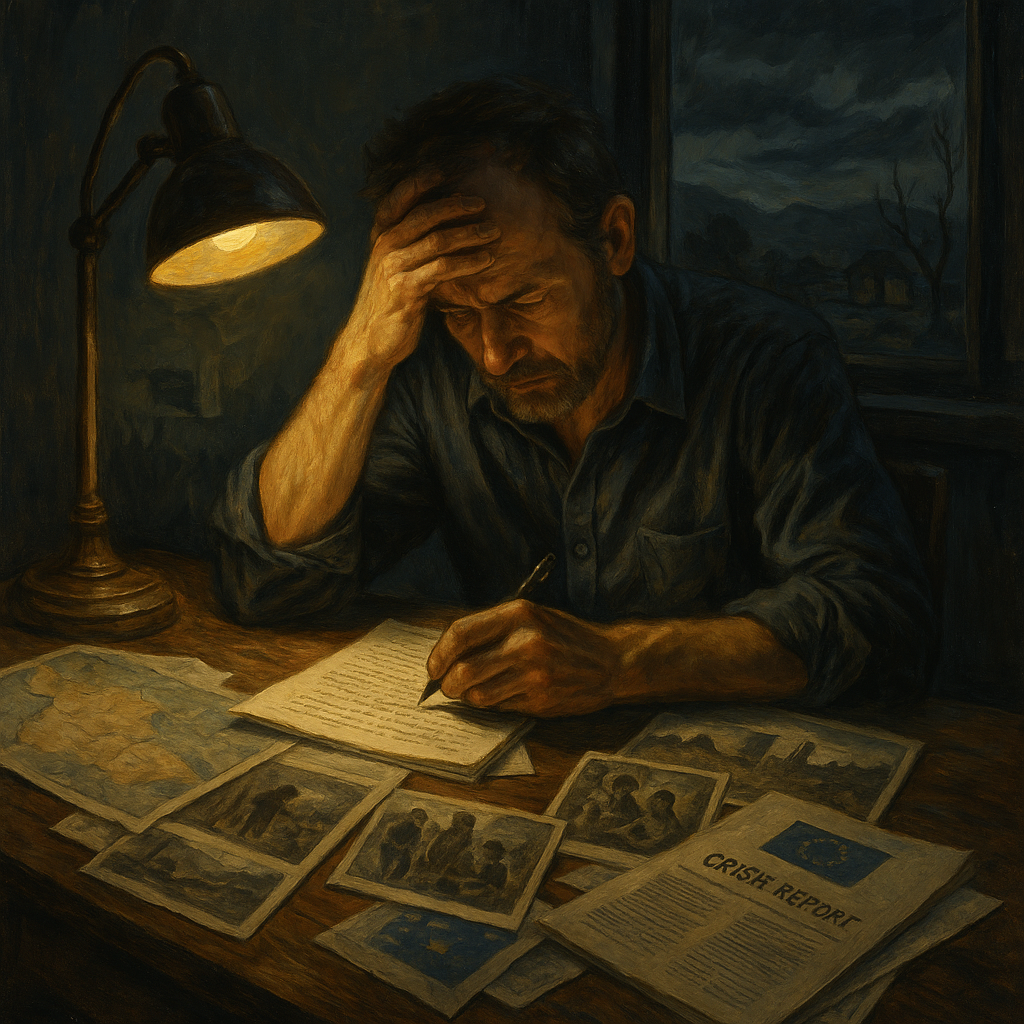From the Field to the Page: Why I Write

Writing
There are moments—often late in the evening, or in transit between field visits—when I find myself needing to stop and write. Not because someone expects a report or briefing, but because it’s the only way I can hold on to what’s happening. The only way to make sense of it. Writing, for me, has never just been about documenting facts; it’s about preserving memory, honouring people, and, perhaps, staying human amidst everything.
Over the years, I’ve filled journals and digital folders with reflections, fragments of dialogue, stories of people and places that changed me. From South Sudan to Myanmar, from Angola to Venezuela, I’ve tried to capture not just the “what” and the “how,” but the “why”—why it mattered, why it hurt, why it inspired.
Often, what I witness in the field makes me feel helpless—something I resist, but cannot always escape. There are days when the weight of it all settles in my chest: the injustice, the indifference, the cruelty of systems that fail the most vulnerable. Writing becomes my way of holding the sorrow without letting it crush me. It is, in truth, an act of survival. It may not change much for those in need, but it offers me a thread of sanity. Putting things down on paper doesn’t fix the world—but it protects me from being swallowed by it.
I write because I have seen things that shouldn’t be forgotten. I write because some stories will never make it into official reports. I write because, despite all the noise, storytelling still connects us—across borders, languages, politics. It builds empathy. And in the humanitarian world, empathy is not a luxury; it’s a lifeline.
Now, as I slowly begin the process of shaping these fragments into a memoir, I’m rediscovering parts of myself. Revisiting field notes from Angola in the late 90s. Scrolling through photos of makeshift clinics and dusty border crossings. Rereading the story of a woman in Colombia who once said to me, “We don’t want your pity, just your honesty.” Her voice still echoes.
The book won’t be a chronicle of my work. It will be a record of becoming—through encounters, mistakes, and lessons. It’s deeply personal, but I hope it also resonates with others who’ve worked in the field, or simply care about the world beyond their own.
Writing is a way of staying close to people I’ve met, to the places I’ve left behind. But it’s also a way of reaching forward—of building bridges between where I’ve been and where I’m going. Between those whose lives I’ve entered briefly, and those who might one day read their stories and see the world a little differently.
So I keep writing. Because it keeps me grounded. Because, I hope, it keeps me honest. Because it reminds me that no matter how fragmented the world feels, we still have the power to connect, to remember, and to care.
